Search
Remove Ads
Advertisement
Summary 
Loading AI-generated summary based on World History Encyclopedia articles ...
Search Results
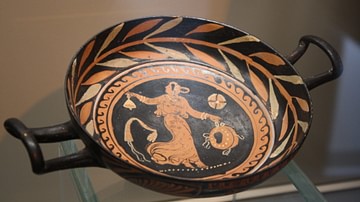
Definition
Bacchae
The Bacchae is a Greek tragedy written by the playwright Euripides (c. 484-406 BCE) in 407 BCE, which portrays Pentheus as an impious king, for the ruler of Thebes has denied the worship of Dionysus within his city walls. For Pentheus, the...
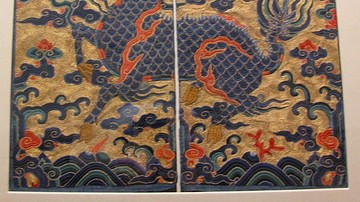
Definition
Qilin (Chinese Unicorn)
The qilin (麒麟, or simply lin 麟) is a Chinese mythical creature, frequently translated as "Chinese unicorn." While this term may suggest a one-horned creature, the qilin is often depicted with two horns. However, like the Western unicorn...
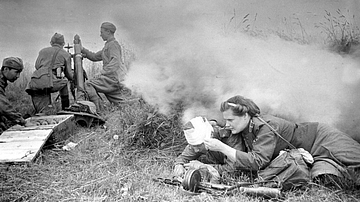
Article
Eyewitness Accounts of WWII's Eastern Front
The Eastern Front (1941-5), called the Western Front or Great Patriotic War by the Soviets, was by far the bloodiest of the Second World War (1939-45). In this article, the memories of those who experienced the conflict firsthand are presented...
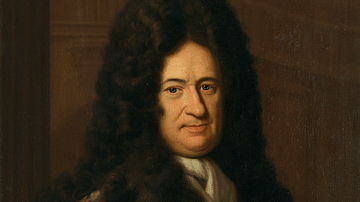
Image
Gottfried Wilhelm Leibniz, 1695
A 1695 oil-on-canvas portrait by Christoph Bernhard Francke of Gottfried Wilhelm Leibniz (1646-1716), the German polymath. (Herzog Anton Ulrich Museum, Braunschweig, Germany)
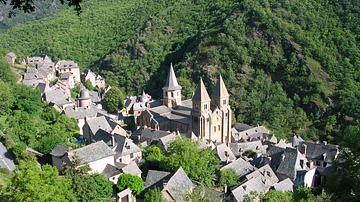
Image
Conques
The abbey church of Saint Foy in Conques was added to the UNESCO World Heritage Sites in 1998 CE, as part of the World Heritage Sites of the Routes of Santiago de Compostela in France.
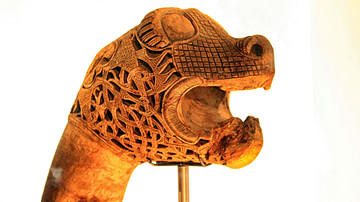
Definition
Viking Art
Art made by Scandinavians during the Viking Age (c. 790-1100 CE) mostly encompassed the decoration of functional objects made of wood, metal, stone, textile and other materials with relief carvings, engravings of animal shapes and abstract...
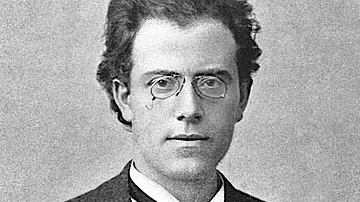
Definition
Gustav Mahler
Gustav Mahler (1860-1911) was an Austrian-Bohemian composer best known for his song-cycles and his grand, sweeping symphonies, which often require expanded orchestras for their full performance. Mahler, a composer of Late-Romantic music and...

Article
Battle of Stalingrad - The Destruction of Germany's Sixth Army
The Battle of Stalingrad (now Volgograd, July 1942 to February 1943) was an attempt by Adolf Hitler (1889-1945) to control the USSR's access to the Caucasus oil fields. Fierce street-fighting by the Soviet Red Army saw the city withstand...
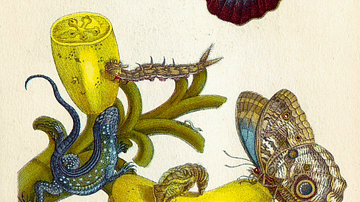
Article
Women Scientists in the Scientific Revolution
Women scientists during the Scientific Revolution (1500-1700) were few in number because male-dominated educational institutions, as well as scientific societies and academies, barred women entry, meaning that few had the education or opportunity...
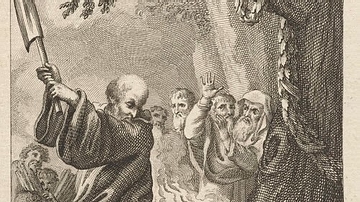
Image
Boniface cuts down holy oak of 'Jupiter' or Donar
Boniface cuts down holy oak of 'Jupiter' or Donar.